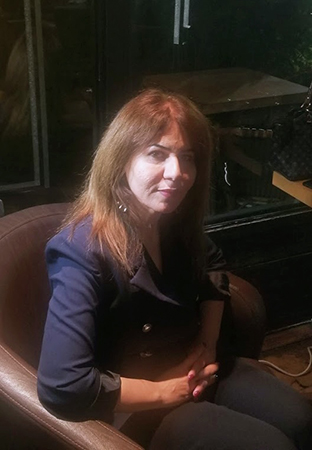Iraqi Christians fear appointment of Islamic judges to country’s highest court
IN A COUNTRY where Christians have been subject to targeted bombings, kidnapping, and discrimination, Church leaders are grappling with a new crisis: an attempt to give Islamic clerics voting rights on Iraq’s highest court, the Federal Supreme Court.
The move, which is under consideration by the Iraqi Parliament, would bring Iraq a step closer to an Iran-like theocracy, in which non-Muslims are forced to live under Islamic Sharia law. For example, in Iran, Christian women are forced to wear the veil and alcohol is completely banned.
The change would include four Islamic jurists among the 13 voting members of the Federal Supreme Court. Plus, all court rulings would require the support of at least three of the four judges, which threatens to permanently radicalize the country’s judiciary.
Professor Muna Yako, an Iraqi Christian activist and constitutional expert, told Aid to the Church in Need that, while the country’s Constitution refers to Islam as the foundation of law, it also references the importance of democracy and respect for human rights.

This change to the Federal Supreme court would likely mean that Islamic law will always have precedence: “You need to have the court to interpret the constitution. Right now, I hope that if a case goes to the Federal Court the judges might prioritize human rights and democracy, in some instances. If, however, these Islamic judges join the court, there will be no chance of ever prioritizing democracy or human rights.”
It would also mean an end to any attempts to overturn legislation that discriminates against religious minorities and treats them like second-class citizens. For example, current law says that non-Muslims can convert to Islam, but that the reverse is not allowed to happen. Likewise, Christian men are not allowed to marry Muslims without converting to Islam, which amounts to a form of “unconstitutional discrimination,” said Yako.
She added: “The Iraqi government has disappointed us so far, but I still have hope of seeing change. If the court adopts this law, though, I will no longer have any hope. This will make Iraq like a theocracy because all the laws will be based on religion—for example, regarding rules about clothes and alcohol.“
Yako expressed concern that if this “terrifying” change happens, even more Christians will leave the country and “we will become just a memory, just like the Jews.” Most Iraqi Christians belong to indigenous groups who have been in the country for thousands of years.
Cardinal Raphael Sako, Patriarch of the Chaldean Catholic Church, in a letter to the Speaker of the Iraqi Parliament, wrote of his concern that the legal changes are proposed “after all the suffering we have endured from terrorism, displacement, pillaging, murder, and property theft.” He charged that the proposal would threaten the future of Christians in the country, by applying Islamic law to Christians in personal matters, such as inheritance.
Legal expert Dr. Sanaan-Guharzi, writing for the news outlet Kurdistan 24, argued that the change “could substantially alter the court’s function, promoting an increasingly theocratic state wherein religious rules take precedence over the existing, mostly secular, legal system.”
Since 2014, Aid to the Church in Need has been on the forefront of supporting Iraqi Christians with projects totaling more than $47M, including humanitarian aid for faithful who fled to Kurdistan to escape ISIS, the repair and rebuilding of Christian homes on the Nineveh Plains, and, currently, the reconstruction and repair of Church infrastructure in northern Iraq.
—Xavier Bisits

